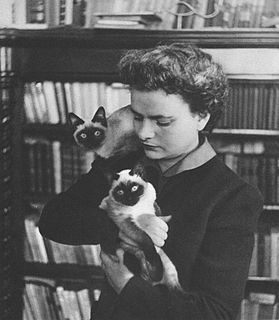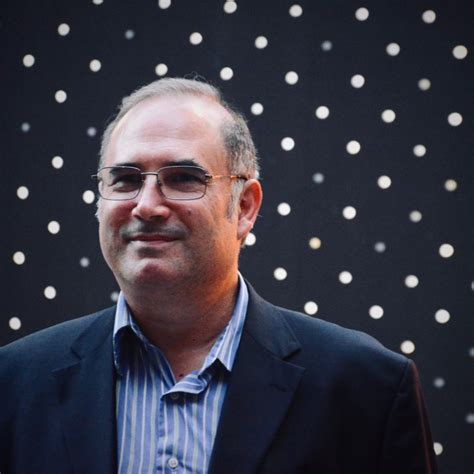A Quote by Elsa Morante
Man, by his very nature, tends to give himself an explanation of the world into which he is born. And this is what distinguishes him from the other species. Every individual, even the least intelligent, the lowest of outcasts, from childhood on gives himself some explanation of the world. And with it he manages to live. And without it, he would sink into madness.
Related Quotes
The ignorant man is not free, because what confronts him is an alien world, something outside him and in the offing, on which he depends, without his having made this foreign world for himself and therefore without being at home in it by himself as in something his own. The impulse of curiosity, the pressure for knowledge, from the lowest level up to the highest rung of philosophical insight arises only from the struggle to cancel this situation of unfreedom and to make the world one's own in one's ideas and thought.
I don't think God is an explanation at all. It's simply redescribing the problem. We are trying to understand how we have got a complicated world, and we have an explanation in terms of a slightly simpler world, and we explain that in terms of a slightly simpler world and it all hangs together down to an ultimately simple world. Now, God is not an explanation of that kind. God himself cannot be simple if he has power to do all the things he is supposed to do.
But myth is something else than an explanation of the world, of history, and of destiny. Myth expresses in terms of the world - that is, of the other world or the second world - the understanding that man has of himself in relation to the foundation and the limit of his existence. Hence to demythologize is to interpret myth, that is, to relate the objective representations of the myth to the self-understanding which is both shown and concealed in it.
Reason cannot desire for man any condition other than that in which not only every individual enjoys the most absolute, unbounded freedom to develop himself out of himself, in true individuality, but in which physical nature, as well, need receive no other shaping by human hands than that which is given to her voluntarily by each individual, according to the measure of his wants and his inclinations, restricted only by the limits of his energy and his rights.
If God wishes to be born as man and to unite mankind in the fellowship of the Holy Ghost, He suffers the terrible torment of having to bear the world in its reality. It is a crux; indeed, He Himself is His own cross. The world is God's suffering, and every individual human being who wishes even to approach his own wholeness knows very well that this means bearing his own cross. But the eternal promise for him who bears his own cross is the Paraclete.
It is not a man's duty, as a matter of course, to devote himself to the eradication of any, even the most enormous wrong; he may still properly have other concerns to engage him; but it is his duty, at least, to wash his hands of it, and, if he gives it no thought longer, not to give it practically his support. If I devote myself to other pursuits and contemplations, I must first see, at least, that I do not pursue them sitting upon another man's shoulders.
There's no obvious reason to assume that the very same rare properties that allow for our existence would also provide the best overall setting to make discoveries about the world around us. We don't think this is merely coincidental. It cries out for another explanation, an explanation that... points to purpose and intelligent design in the cosmos.
Every man has some reminiscences which he would not tell to everyone, but only to his friends. He has others which he would not reveal even to his friends, but only to himself, and that in secret. But finally there are still others which a man is even afraid to tell himself, and every decent man has a considerable number of such things stored away. That is, one can even say that the more decent he is, the greater the number of such things in his mind.
Pain and pleasure, like light and darkness, succeed each other; and he that knows how to accommodate himself to their periodical returns, and can wisely extract the good from the evil, knows only how to live: this is true contentment, at least all that is to be had of it in this world; and for this every man must be indebted not to his fortune, but to himself.
Shower on him every blessing, drown him in a sea of happiness, give him economic prosperity such that he should have nothing else to do but sleep, eat cakes, and busy himself with the continuation of the species, and even then, out of sheer ingratitude, sheer spite, man would play you some nasty trick.
Society is to the individual what the sun and showers are to the seed. It develops him, expands him, unfolds him, calls him out of himself. Other men are his opportunity. Each one is a match which ignites some new tinder in him unignitible by any previous match. Without these the sparks of individuality would sleep in him forever.
Now it seems to me that love of some kind is the only possible explanation of the extraordinary amount of suffering that there is in the world. I cannot conceive of any other explanation. I am convinced that there is no other, and that if the world has indeed, as I have said, been built of sorrow, it has been built by the hands of love, because in no other way could the soul of man, for whom the world was made, reach the full stature of its perfection. Pleasure for the beautiful body, but pain for the beautiful soul.






































